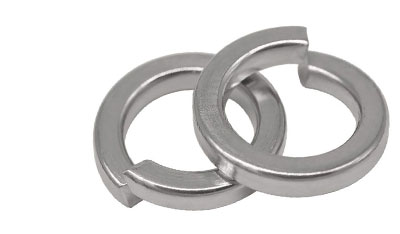Comparison of Lock Nut and Lock Washer Suppliers for Optimal Fastening Solutions
Understanding the Difference Between Lock Nuts and Lock Washers A Guide for Suppliers
When it comes to securing mechanical components, choosing the right fasteners is crucial. Among the many options available, lock nuts and lock washers are two common choices. While they might seem insignificant, their effectiveness in preventing loosening under vibration and load is paramount. This article delves into the distinctions between lock nuts and lock washers, exploring their applications and suppliers in the industry.
What Are Lock Nuts?
Lock nuts are specialized nuts designed to resist loosening under torque and vibration. There are various types of lock nuts, with some of the most common being nylon-insert lock nuts (often referred to as Nylock nuts), prevailing torque lock nuts, and double-nuts.
1. Nylon-Insert Lock Nuts These consist of a hexagonal nut with a nylon insert at one end. The nylon insert grips the threads of the bolt, providing additional friction and preventing the nut from loosening. 2. Prevailing Torque Lock Nuts These nuts have distorted threads that create a friction fit with the mating bolt. The increased torque required to tighten them helps maintain their position.
3. Double Nuts This involves using two nuts on the same bolt. When tightened against each other, they create a locking mechanism, reducing the risk of loosening.
Lock nuts are widely used in automotive, aerospace, and machinery applications where safety and reliability are critical.
What Are Lock Washers?
Lock washers are flat washers designed to prevent loosening. They achieve this by providing a spring action that helps maintain tension in the connection. The two most common types are split lock washers and tooth lock washers.
1. Split Lock Washers These have a split or gap that allows them to exert spring pressure against the nut and bolt connection when compressed. This design creates friction, making it harder for the joint to loosen.
2. Tooth Lock Washers These feature sharp teeth on one side. When installed, the teeth dig into the bolt and the surface of the material, providing a more secure grip that helps prevent loosening.
Lock washers are often used in conjunction with standard nuts and bolts to ensure a stable assembly in machinery, electronics, and automotive applications
.lock nut vs lock washer suppliers

Choosing Between Lock Nuts and Lock Washers
Deciding whether to use lock nuts or lock washers depends on the specific application and environmental conditions. Lock nuts are typically easier to install since they don’t require additional components and are effective in moderate to high vibration environments. They are also reusable, making them a cost-effective option in many scenarios.
On the other hand, lock washers can be beneficial in applications where space is limited, as they can be used alongside existing nuts without adding height. They are also preferable in certain settings where disassembly is frequent, as they tend to maintain their integrity over multiple uses.
Supplier Considerations
When sourcing lock nuts and lock washers, choosing the right supplier is vital. Here are some factors to consider
1. Quality Standards Ensure that the supplier adheres to industry standards such as ISO, ASME, or DIN. Quality assurance is crucial to maintain safety and reliability.
2. Material Variety Suppliers should offer a range of materials, including stainless steel, carbon steel, and specialty alloys, to cater to different applications and environmental conditions.
3. Customization Options Depending on specific needs, find suppliers who provide customization options for sizes, thread variations, and coatings.
4. Lead Time and Stock Availability Opt for suppliers that can provide quick turnaround times and maintain adequate stock levels to avoid production delays.
5. Technical Support Suppliers who offer technical assistance and advice can provide significant value, especially if you are unsure about which fastener is best for your needs.
Conclusion
Lock nuts and lock washers play an essential role in ensuring mechanical integrity in various applications. Understanding their differences and selecting the right type for specific needs can greatly enhance the performance and reliability of mechanical assemblies. By collaborating with trusted suppliers, businesses can secure high-quality fasteners that meet industry standards, ultimately contributing to safer and more efficient operations.
-
Top Choices for Plasterboard FixingNewsDec.26,2024
-
The Versatility of Specialty WashersNewsDec.26,2024
-
Secure Your ProjectsNewsDec.26,2024
-
Essential Screws for Chipboard Flooring ProjectsNewsDec.26,2024
-
Choosing the Right Drywall ScrewsNewsDec.26,2024
-
Black Phosphate Screws for Superior PerformanceNewsDec.26,2024
-
The Versatile Choice of Nylon Flat Washers for Your NeedsNewsDec.18,2024










